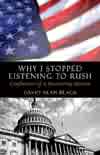|
restoring our biblical and constitutional foundations
|
Should Christians Tithe?
“Before the Word, everyone must give way.” – Martin Luther
When most Christians think about supporting their churches financially, they think about giving ten percent of their income. After all, they have been told that this percentage of their income “belongs to God.” Yet the New Testament knows nothing of the tithe. In contrast to our man-made ecclesiastical traditions, the New Testament teaches that all of our income belongs to God, and that the percentage we give in our offerings is up to the individual Christian’s conscience.
If the New Testament fails to teach the tithe, then why do most of us continue to believe it is Scriptural and therefore binding? Perhaps one reason is the support tithing receives from pastors. To cite but one example, here’s a quote from a booklet I recently received from David Jeremiah of Turning Point (whose ministry our family supports):
Why should we tithe? We should tithe because if we don’t, we are disobeying God. God has given us everything we have, but He wants us to be obedient and give 1/10 of it back to Him. He doesn’t need our money, but He does require our obedience (see Malachi 3:8-10).
While I love Dr. Jeremiah as a dear brother in Christ and greatly appreciate his ministry, what he has written does not square with the New Covenant teaching on tithing. There is not one word in the New Testament to suggest that Christians ought to tithe.
Some will say, “The New Testament is vague on the topic of giving.” That is not true. The New Testament is as clear about giving as it is on any other doctrine. The Old Testament tithe (altogether amounting to about 23 percent) was not adopted by the New Testament church. Christians were encouraged to give liberally (Rom. 12:8), but the New Testament never gives a percentage as a required standard for our giving. Instead, it says, “Let each one do just as he has purposed in his heart; not grudgingly or under compulsion; for God loves a cheerful giver” (2 Cor. 9:7). Notice that believers are not told how much to give. Paul does not give them a fixed percentage as a standard. He simply tells them that they should give whatever they have “purposed in [their] heart,” that is, whatever they have decided to give beforehand. He insists that we should be faithful to follow through on what we have decided to contribute to the Lord’s work, but the amount is up to us. There is to be no compulsion whatsoever in our giving; the amount must be our own decision.
In 1 Corinthians 16:1-2 Paul adds: “Now concerning the collection for the saints, as I directed the churches of Galatia, so do you also. On the first day of every week let each one of you put aside and save, as he may prosper, that no collections be made when I come.” Here Paul instructs the church in Corinth to give proportionately to how they have been prospered by God. Again, no mention is made of the tithe. Believers are simply instructed to give proportionate to their prosperity.
Paul also writes in 2 Corinthians 8:3-4: “For I testify that according to their ability, and beyond their ability they gave of their own accord, begging us with much entreaty for the favor of participation in the support of the saints....” Here Paul emphasizes the fact that the churches of Macedonia gave “of their own accord.” Nobody twisted their arm. Believers are always to give voluntarily. God wants us to give because we want to do so. Our gifts should be “generous” (2 Cor. 9:5) and given with “liberality” (2 Cor. 9:11), for God will see to it that the generous giver will not suffer want.
Finally, what should our attitude be when we give? Note again 2 Corinthians 9:7: “Let each one do just as he has purposed in his heart; not grudgingly or under compulsion; for God loves a cheerful giver.” Giving is a joyful privilege, not a joyless duty. God wants us to give from an attitude of cheerfulness, not out of a sense of obligation. It is interesting that the only passage in the New Testament that describes the mind-set with which we are to give describes it as joyfulness! Such cheerful giving is the appropriate response to God’s “indescribable gift,” His own Son (2 Cor. 9:15).
In short, whereas the Old Testament tithe was required by the Law, the New Testament emphasizes the complete voluntary character of giving. This is exactly what Abraham did before the institution of the Law, and it is what Christians are to be doing today. We are free to give any amount we choose – whether it is 10 per cent as Abraham did, or 50 per cent, or 90 percent, or any other percentage.
If the ideas presented in this essay are true, isn’t it obvious that many of our churches have departed from the teaching of Scripture? How can we claim to take the New Testament seriously and yet turn a deaf ear to the clear, undeniable pattern that marked the early apostolic church? If we are to see revival in our churches, we must speak out against false traditions and begin to conform all of our practices to the New Testament patterns. As John Stott has said (“Basic Stott,” Christianity Today, January 8, 1996):
The hallmark of an authentic evangelicalism is not the uncritical repetition of old traditions, but the willingness to submit every tradition, however ancient, to fresh Biblical scrutiny and, if necessary, reform.
David Alan Black is the editor of www.daveblackonline.com. He is the author of Why I Stopped Listening to Rush and numerous other books.
